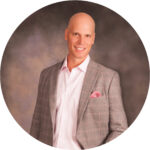What’s Up With These Ridiculous Healthcare Costs?
October 16, 2013 by Raymond Lee
Times are changing in HR departments across the nation. Rising healthcare costs are forcing businesses to raise healthcare premiums to an unprecedented level, or not offer healthcare at all. The rise in healthcare costs far exceeds the general rate of inflation.
With new healthcare reforms coming, this battle is going to get tougher. Consumers and small employers alike are finding it nearly impossible to afford their health insurance premiums. According to an Aetna study, only 50% of businesses with fewer than 10 employees offered coverage in 2012. Let’s take a look at why these costs are so steadily rising.
Carrington College brings us an interesting infographic outlining the 7 leading factors leading to rising healthcare costs. It is projected that by 2021, healthcare spending will account for 1/5th of U.S. economy. While consumers have taken a serious hit here, more of the burden has fallen on employers.
- In 2002, the average annual contributions were $2,137 from the worker, and $5,866 from the employer.
- In 2012, the average annual contributions were $4,316 from the worker, and $11,429 from the employer.
What can possibly account for this huge increase?
Costly new medical technology is a major factor in the cost spike. Just one MRI machine can costs anywhere from $500,000-$1.2M. Estimates indicate that this new tech accounts for 50% of growth in medical costs since the 60s. This technology is replacing lower cost options, forcing consumers to take the higher-priced services.
Trying to stay ahead of the game, providers have drastically inflated prices. Healthcare costs price inflation exceeded wage growth by 42% in the period between 1999 and 2010. Research indicates that hospital spending is a huge factor in rising costs. Physician and clinical service costs accounted for 18% of total growth over the five-year period from 2005 and 2009.
Consumers are utilizing primary care far less these days, and there are significant correlations between saving money and having a primary care physician. Less than 40% of the nation has a primary care physician. Using information from a study that found that raising the use of primary care physicians to 1 per 10,000 people, researchers found that higher primary care use could yield a savings of $316B over the period of ten years.
Primary care physicians and specialists are experiencing serious increases in salary. From 2007-2011:
- Primary care salaries experiences a 16.7% increase, resulting in an average salary of $212,840.
- Specialist care salaries rose at a rate of 15.6%, and almost doubled their average salary at $384,467.
Living longer should be considered a gift, but this gift is putting serious strain on thehealthcare systems. As the baby boomers hit retirement, they still have a ways to go, and their projected multiple chronic conditions will be costly to treat.
- 25% will have diabetes
- Almost half will have arthritis
- About 1/3 will be obese
Speaking of chronic illnesses, they are rapidly becoming more prevalent. Asthma, heart disease and diabetes are the top 3 chronic illnesses that nearly 50% of the nation has. 70% of American deaths each year are results of these chronic diseases.
Sad to say, fraud made the list of the top 7 factors in rising healthcare costs. Rough estimates indicate that Medicare and Medicaid fraud alone put the total close to $100B. While it’s impossible to get hard numbers, court cases can give us a sense of what’s happening. What is considered the largest case of healthcare fraud in the nation, a settlement of $3B was made.
More from Careerminds
In need of outplacement assistance?
At Careerminds, we care about people first. That’s why we offer personalized talent management solutions for every level at lower costs, globally.




